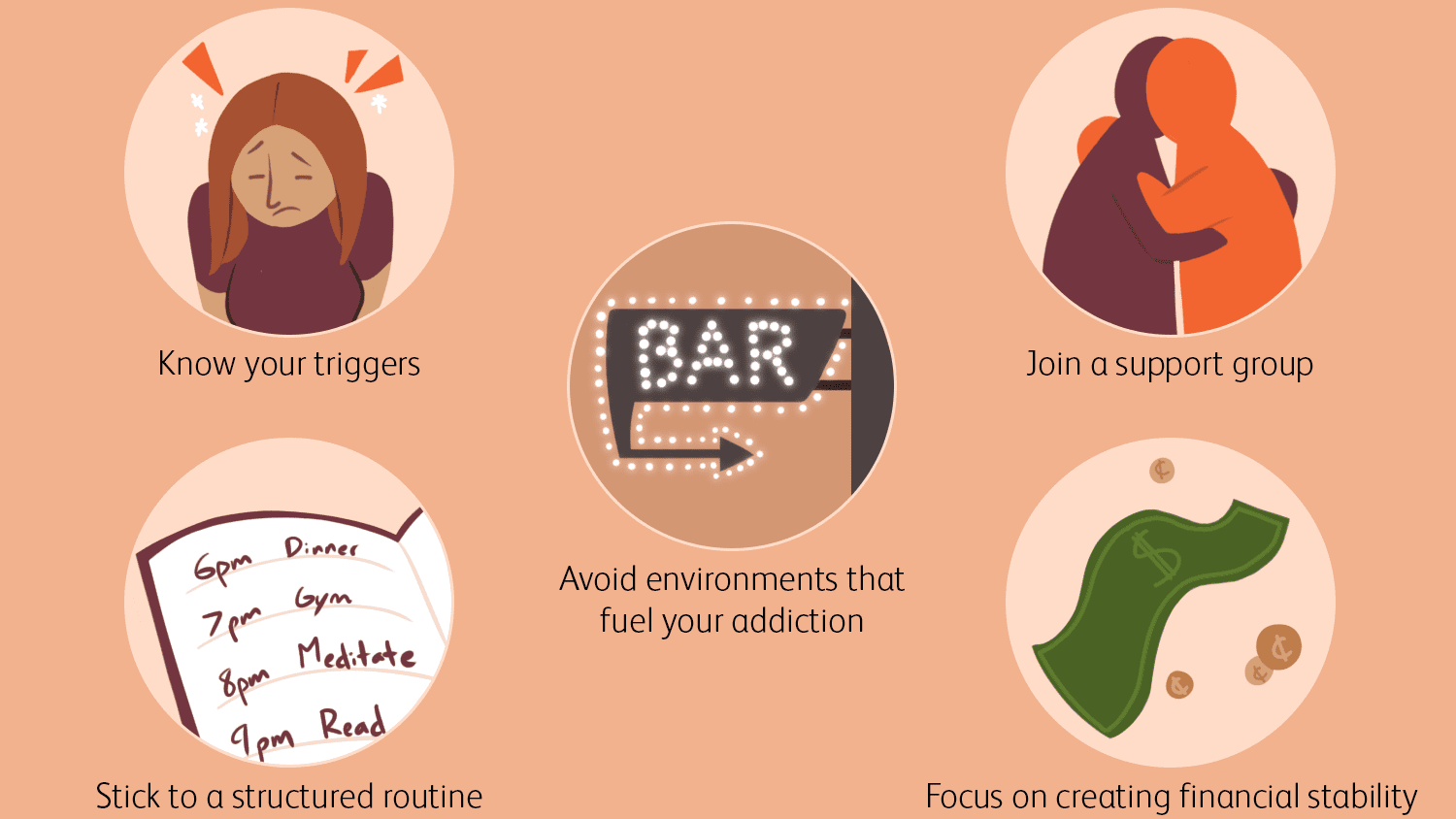Useful Words Of Advice That Will Help You On Your Journey To Sobriety
4 min read
how to stay committed to sobriety, why do addicts relapse when things are good, staying sober quotes, what to say to an alcoholic, relapse prevention strategies ,, how to get sober fast, getting sober without rehab, how to stay away from drugs,
Rehab from a substance abuse disorder is a long and difficult process. Typically, the greatest risk to long-term sobriety is relapse. This is why specialized rehab helps you learn how to control and do everything in your power to avoid relapse. To be honest, it may occur to you that relapse is the last thing that can happen during your healing. However, the truth is that relapses usually happen to people who are new to the recovery process. To stay consistent and successful on your path of healing, we have prepared a list of pieces of advice that may help you on your journey to sobriety.
What Is the Definition of Sobriety?
According to the definition, sobriety in some contexts refers to not being under the influence of substances. However, this word is normally used to describe different phenomena in different contexts. Normally, 12-step programs suggest that sobriety means total abstinence from the substance and never using it again. Some other definitions suggest that sobriety is the process of recovery and developing coping mechanisms that support long-term wellness and health. The ultimate goal of the sobriety process is total abstinence, while in reality, setbacks are a common occurrence. Given the fact that 80% of people seeking sobriety relapse during their rehab, it demands more than just willpower to avoid relapses.
Identify Your Personal Triggers!
The first step in dealing with addiction, any kind of addiction, is to recognize the triggers that make you use a particular substance. These triggers can be anything, and they vary depending on the person. Triggers can be divided into two groups: external and internal ones. External triggers may include places, people, things, and situations connected with thoughts of and substance abuse. On the other hand, internal triggers such as thoughts, feelings, and emotions are most common when it comes to substance abuse. Dealing with the triggers is much easier when you have a team of people who will help you go through rehab, so you should click here to find out more about the different types of procedures that can help on your journey to sobriety. Once you identify what the riskiest triggers are for you, you should be consistent in your journey to avoid them.
Some of the most common for almost all substance abusers include emotional distress, stress, relationship troubles, environmental causes, job problems, and financial problems. Yet, the first step in your healing is recognizing the most alarming triggers that cause you to think of a substance that relieves you.
Relapse Warning Signs: Beware of Them
One of the reasons why people usually relapse is that they fail to recognize the warning signs indicating that their body might be craving the substance. To this end, it is imperative to mention that relapse begins long before someone uses the substance. Typically, relapse has three phases: emotional relapse, physical relapse, and mental relapse.
Some of the most striking relapse signs include:
- return to the thinking patterns characteristic of substance abusers
- coming back to self-destructing and compulsive behaviors
- seeking for the people using alcohol or drugs; included in the situations involving drugs and alcohol
- not thinking rationally and not behaving responsibly
- getting yourself into situations where using alcohol and drugs is a natural outcome of the situation.
Avoid Old Patterns and Behaviors
A key to your healing is to completely delete old routines and habits from your life and seek the ones that will break the pattern. It is like breaking the habit of being yourself. The main danger of substance abuse is that it creates a comfort zone where substance abuse feels like the right thing to do. Quitting the substance you use while still hanging with the same people and places, sticking to the same routine, and not making any changes in your current circumstances; in this case, relapse is just a matter of moment.
One of the crucial changes you need to make immediately is to stop hanging around the people you used to hang with and the ones you used to obtain your substances from. In the end, you cannot keep hanging with your dealer and old drinking buddies and expect the best outcome. You will relapse immediately.
The path of sobriety is a long and tough way to go. There are too many challenges to face and ups and downs to go through. However, with proper rehab and willpower, complete abstinence is more than possible. Breaking your old habits is the first step in achieving this goal, and we hope that this guide will assist you in doing so.







